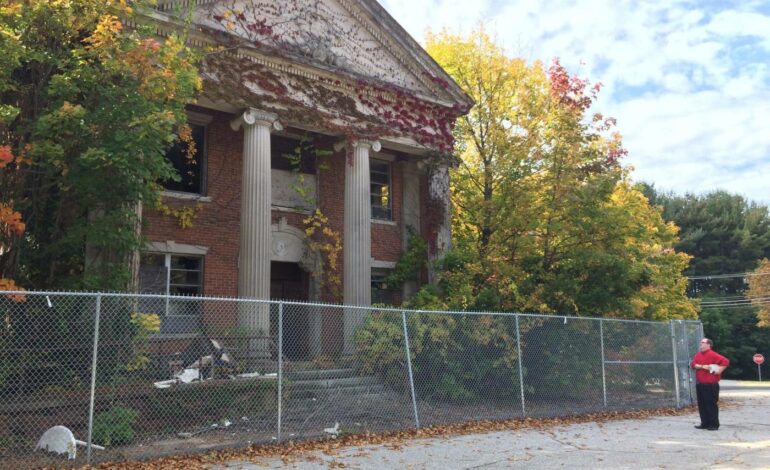University of Connecticut Students Uncover Dark Legacy of Training School

Research by students and faculty at the University of Connecticut has revealed troubling historical insights about the Mansfield Training School, an institution that housed individuals with intellectual disabilities until its closure in 1993. English professor Brenda Brueggemann and her students have spent the last three years examining archives, interviewing former residents and staff, and documenting a legacy intertwined with societal attitudes toward disability.
The investigation began when student Jess Gallagher, while working on an honors thesis, explored the history of disability treatment at UConn and discovered the abandoned campus of the Mansfield Training School. This site, now known as the “Depot Campus,” is marked by deteriorating buildings and a haunting history that few seem aware of.
Uncovering a Controversial Past
Brueggemann described the initial findings as a “dark realization” about how the institution operated. The research team meticulously combed through archives, uncovering a timeline that dates back to its founding in 1850 by Dr. Henry Knight. Initially called “Knight Hospital,” the facility evolved into the Mansfield Training School and Hospital by 1917, reflecting changing societal views on disability.
Throughout the decades, the institution underwent various transformations, from a hospital in the mid-1800s to a site for psychological experimentation by the 1960s. The treatment of residents shifted from harsh methods such as restraint and isolation to more humane approaches, yet the archives revealed persistent issues of abuse and neglect.
Gallagher’s research involved approximately 400 hours of archival work, revealing that many residents were often referred to merely as “numbers.” However, personal stories, such as that of former resident Jimmy Lundquist, provided deeper insights into the experiences of those living in such institutions. Lundquist, who spent nearly two decades there, recounted instances of abuse and his eventual struggles to find independence after leaving.
A Call for Remembrance
Brueggemann has taken it upon herself to compile an oral history of the institution, gathering narratives from former residents’ families and staff. She believes that these accounts are essential for understanding the complex legacy of the Mansfield Training School. “The more I found, the more I knew that we needed a memorial of some kind,” she stated, emphasizing the importance of recognizing the past.
As public sentiment shifted against institutionalization, lawsuits emerged, culminating in the closure of the Mansfield Training School. By 1970, investigations revealed overcrowding and mistreatment of residents, leading to significant reforms. However, the eventual legal actions resulted in the relocation of remaining residents to community-based settings.
After its closure, the site was left to deteriorate, with the University of Connecticut acquiring the campus in 1969. Since then, attempts to repurpose the land have largely failed, and discussions about the possibility of human remains buried on the site continue. Brueggemann and her students have reached out to university officials about conducting ground-penetrating radar surveys, but as of now, no action has been taken.
Former employees, like John Ryan, remember a mix of positive experiences and dark realities from their time at the school. Ryan, who worked as an aide, noted that while some staff formed meaningful connections with residents, the environment was plagued by stigma and neglect. He called for a balanced portrayal of the institution’s history, one that acknowledges both the progress made and the darker aspects of its past.
For families of former residents, such as Jan Doyle, the history of the Mansfield Training School is deeply personal. Doyle’s sister, Evvie, lived there for over four decades. Reflecting on her family’s experiences, she expressed the necessity of sharing these stories to foster understanding and healing. “We should be telling these stories,” Doyle remarked, emphasizing the impact of these narratives on families grappling with similar histories.
Ultimately, the work of Brueggemann and her students sheds light on a chapter of history that has long been overlooked. Their commitment to uncovering the truth about the Mansfield Training School serves as a reminder of the importance of recognizing and memorializing the experiences of individuals with disabilities, ensuring that the lessons learned from the past are not forgotten.






